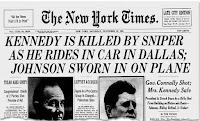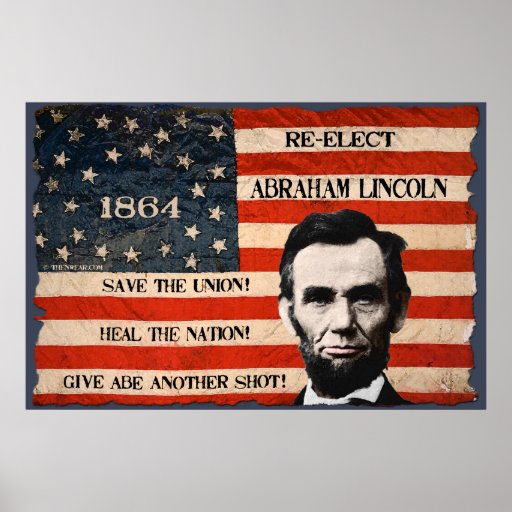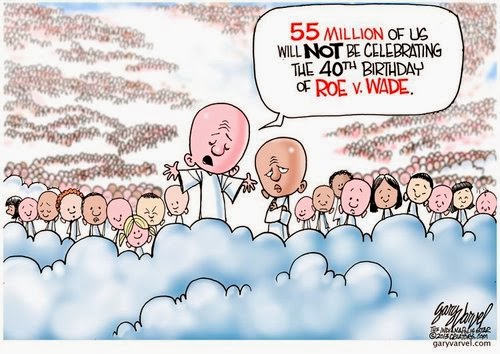P.S. Check out my blog for posts, podcasts and videos. If you like our posts, please look for ”Donate” on the right column of the blog page.1. The Most Beautiful Girl - Charlie Rich (Epic)2. Top of the World - The Carpenters (A&M)3. Goodbye Yellow Brick Road - Elton John (MCA)4. Just You 'n' Me - Chicago (Columbia)5. Time In a Bottle - Jim Croce (ABC)6. Hello It's Me - Todd Rundgren (Bearsville)7. Leave Me Alone (Ruby Red Dress) - Helen Reddy (Capitol)8. The Love I Lost -Harold Melvin & the Blue Notes (Philadelphia Int.)9. The Joker - The Steve Miller Band (Capitol)10. Photograph - Ringo Starr (Apple)
"Freedom is never more than one generation away from extinction. We didn't pass it to our children in the bloodstream. It must be fought for, protected, and handed on for them to do the same, or one day we will spend our sunset years telling our children and our children's children what it was once like in the United States where men were free." - President Ronald Reagan
Sunday, December 16, 1973
1973: Top 10 this week WABC radio in New York
Thursday, November 22, 1973
1963: President Kennedy was assassinated in Dallas
Last, but not least, I have spoken to Cubans living in New Orleans in 1962-63 who got into heated arguments with Oswald over Cuba. They will attest to the fact that Oswald was a "Castro loving communist," or exactly the kind of jerk who would kill the president of the US."The facts are that President Kennedy was a martyr in the Cold War struggle against communism. The assassin was a communist and not a bigot or a right-winger. Oswald defected from the U.S. to the Soviet Union in 1959, vowing when he did so that he could no longer live under a capitalist system. He returned to the U.S. with his Russian wife in 1962, disappointed with life under Soviet communism but without giving up his Marxist beliefs or his hatred of the U.S. By 1963, Oswald had transferred his political allegiance to Castro's communist regime in Cuba.In April 1963, Oswald attempted to shoot Edwin Walker, a retired U.S. Army general, as he sat at a desk in his dining room. Walker was the head of the Dallas chapter of the John Birch Society and a figure then in the news because of his opposition to school integration and his demand that the Castro regime be overthrown. The rifle Oswald used in the attempt at Walker's life was the one he used to shoot Kennedy.Dallas police would not identify Oswald as Walker's would-be assassin until after the assassination of Kennedy, but Oswald, fearful that he would be identified for the Walker shooting, fled Dallas for New Orleans.In June 1963 he established a local chapter of Fair Play for Cuba, a national organization dedicated to gaining diplomatic recognition for Castro's regime. Oswald was filmed by a local television station in New Orleans circulating leaflets on behalf of the Castro government and was jailed briefly following a street altercation with anti-Castro Cubans. Soon thereafter he appeared on a local television program to debate U.S. policy toward Cuba.In late September, Oswald left New Orleans to travel to Mexico City in pursuit of a visa that would permit him to travel to Cuba and then to the Soviet Union. As documented in the Warren Commission Report, he took along a dossier of news clippings on his pro-Castro activities to establish his revolutionary bona fides with personnel at the Cuban and Soviet embassies in the city.Oswald returned to Dallas empty-handed after being told that his application would take months to process. He was still waiting on his application six weeks later when he read that President Kennedy's forthcoming visit to Texas would include a motorcade through downtown Dallas and past the building where he worked.The assassin's motives for shooting Kennedy were undoubtedly linked to a wish to interfere with the president's campaign to overthrow Castro's government. After the Cuban Missile Crisis, Kennedy pledged to abandon efforts to overthrow Castro's regime by force. But the war of words between the two governments continued, and so did clandestine plots by the Kennedy administration to eliminate Castro by assassination."
Thursday, November 08, 1973
1864: President Lincoln was reelected!
As people voted, General Sherman's troops were running around the South and winning battles. Lincoln carried all but three states (Kentucky, New Jersey, and Delaware), and won 55 percent of the vote. He won 212 electoral votes to McCellan’s 21.
On one hand, it was a good victory for President Lincoln. On the other hand, it was not a national election since the South did not participate.
Thursday, October 25, 1973
1973: Ferguson Jenkins traded to Rangers for a young Bill Madlock
Who remember this? On this day in 1973, the Cubs traded 6-time 20-game winner Ferguson Jenkins to the Rangers for third baseman Bill Madlock and utility man Vic Harris.
Jenkins won 25 games for a very young Texas team that challenged Oakland for the AL West title in 1974.
He won 284 with a 3.34 ERA and 267 complete games over 19 seasons. Jenkins was selected to The Hall of Fame in 1991.
On the other hand, Madlock went on to have a great career: .305 average and 2,008 hits in 15 seasons. He won 4 batting titles, 2 in Chicago and 2 in Pittsburgh.
Friday, September 14, 1973
1901: President McKinley died on this day
P.S. You can listen to my show. If you like our posts, please look for ”Donate” on the right column of the blog page.
Wednesday, May 30, 1973
A beautiful letter for Memorial Day
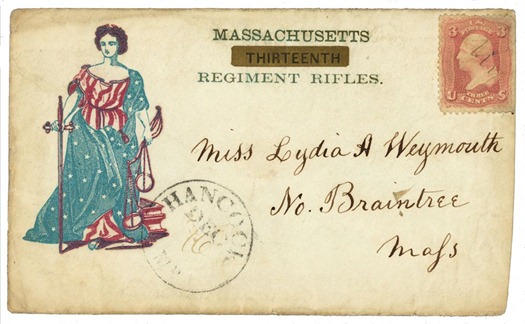
"I have no misgivings about, or lack of confidence in the cause in which I am engaged, and my courage does not halt or falter."
P.S. You can listen to my show. If you like our posts, please look for ”Donate” on the right column of the blog page.
Tuesday, May 15, 1973
May 15, 1973: Remembering the 1st of Nolan Ryan's 7 no-hitters

Saturday, February 10, 1973
1889: Future President Herbert Hoover married Lou Henry

The couple met in Stanford University and traveled extensively during their marriage.
Hoover was elected in 1928 after a very successful public and private career. Mrs. Hoover was an author, wrote articles, spoke five languages and received eight honorary degrees in her lifetime.
President Hoover lost his reelection to Franklin D. Roosevelt in 1932. After that, former President Hoover worked on many projects including developing a very good friendship with President Truman.
He died in 1964 and Mrs. Hoover in 1944.
Sunday, January 28, 1973
1973: The cease fire started in Vietnam

The fighting did not stop because both sides accused the other of violations. The "cease fire" did allow the US to finish its mission and get the POW's out of North Vietnam.
The "cease fire" quickly fell apart in late 1974 when the North invaded much of the South without consequences. In other words, the US did not use its air power to support the South.
South Vietnam collapsed in May 1975. Wonder who would have believed that on this day in 1973?
Years later, President Nixon wrote a great book about the war and how it ended:
Monday, January 22, 1973
1973: Another awful anniversary of "Roe v Wade" and abortion in the US
We recall today another anniversary of Roe v Wade, the Supreme Court decision that legalized abortion in the U.S. Before the Roe v Wade opinion, abortion was a state matter or an issue settled by voters, not un-elected judges.
My opposition to abortion, or Roe v Wade, is based on two factors;
1) Abortion is the taking of a human life. What else is it? Why does any woman have an abortion anyway? (Of course, I'm not talking about those isolated and rare cases where the mother's life is in jeopardy)
2) Abortion is a state issue. I think that voters, and legislatures, should decide whether or not abortion is legal in their jurisdictions.
Last, but not least, Roe v Wade has "poisoned" our judicial appointments. We've turned every Supreme Court nomination into a battle over Roe v Wade.
We pray that Roe v Wade is overturned. We will be a better country without legal abortions.
Sunday, January 14, 1973
1973: ‘Que cosa mas grande,’ said a Cuban abuelo about the perfect Dolphins!

“On January 14, 1973, the Miami Dolphins defeat the Washington Redskins 14-7 at the Los Angeles Coliseum in Super Bowl VII, becoming the first team in National Football League (NFL) history to finish with an undefeated season.”
Thursday, January 11, 1973
Tony Oliva, Mike Cuellar, Luis Tiant and the first year of the DH in the American League

On this day in 1973 or 2 months before players reported to spring training, the American League adopted the “Designated Hitter” effective for the upcoming season.
Wednesday, January 03, 1973
1973: George Steinbrenner Purchased New York Yankees
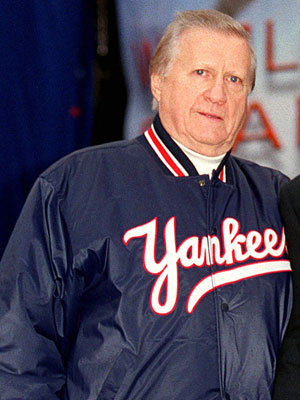
On this day in 1973, George Steinbrenner Purchased the New York Yankees.
He got to work quickly and the Yankees started winning. They competed for division titles in 1974 & 1975. In 1976, the Yankees won their first AL pennant since 1964 but lost to the Reds in the World Series.
The Yankees beat the LA Dodgers in the 1977 & 1978 World Series.
In 1980, KC beat NY in the ALCS. In 1981, LA beat NY in the World Series.
Steinbrenner spent most of the 1980's spending money but not winning.
In 1995, NY was a wild card team but lost a tough series to Seattle.
From 1996 to 2003, the Yankees won 4 World Series and lost 2.
They won another WS in 2009 but Steinbrenner died in 2010.
By the way, he was born on July 4, 1930 and died in 2010.

